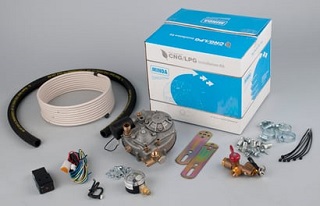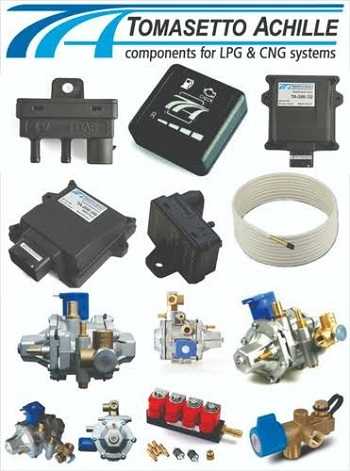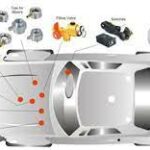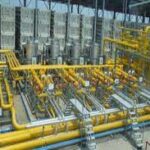Looking at the current prices of petrol/gasoline majority of petrol car owners are opting to convert their petrol car into BI-fuel but one needs to keep some things in mind before installing an aftermarket CNG kit in your car. CNG cars have become immensely popular nowadays. Considering the growing fuel prices, we have seen a shift in consumer preferences. CNG cars are doing great in the market considering the great efficiency they deliver. CNG cars are fuel-efficient and therefore, prove to be extremely affordable. In this article, we will put the factory fitted CNG against the aftermarket CNG fitment and will conclude after considering all the aspects. Make sure you don’t skip any point!
Before diving straight into the competition, let’s answer a popularly asked question
How many types of CNG kits are there?
There are mainly 2 types of CNG kits
- Venturi CNG Kit

Digging deep, we can say that the venturi CNG kit is the simple version of the bi-fuel system which does not use any sensors or even the ECU! This system dumps a certain amount of gas into the intake manifold which is used by the engine. The amount of gas dumped into the manifold depends upon the throttle input.
- Sequential CNG Kit
This is the modern CNG system. The sequential CNG kit has got all the modern age sensors and the ECU. The gas injectors are coupled with the already existing fuel injectors in the intake manifold. Gas flow is monitored and adjusted electronically by a separate ECU for CNG, just like how the petrol ECU controls petrol flow.

What is the difference between a normal CNG kit and a sequential CNG kit??
This is also a popularly asked question. I’ve figured out the difference between a normal CNG kit and a sequential CNG kit. Read on to find out!
- The main difference between the two kits is the availability of the sensors and the ECU.
- The amount of CNG flowing into your engine is controlled by the ECU which gives an edge to the sequential system over the venturi CNG kit.
- A conventional CNG kit is a basic setup where there is no computer or ECU to control the flow of gas into the engine.
- A Sequential CNG kit, on the other hand, can be installed on vehicles having an electronically controlled fuel injection system only.
Is CNG bad for Engines??
Absolutely Not! CNG is not at all bad for your car’s engine. CNG enables you to run your car at a much economical price. Major brands in India like Maruti Suzuki and Hyundai are providing company fitted CNG in their cars. We have also seen from the sale stats that the company fitted CNG cars are sold in much higher numbers than the petrol or diesel cars. Yes, the preferences have shifted. The app-based cab facilities have given the CNG cars a major push.
Not only Maruti Suzuki or Hyundai, but Honda has also come up with a factory-fitted version of their largest selling model, the City. All the automakers incorporating the bi-fuel technology is a clear indication that CNG is not at all bad for your car’s engine!’
Is company-fitted CNG better? Company fitted CNG vs Aftermarket CNG!
This is the most popular question among the masses who are about to buy a new car and looking for CNG as a fuel option. Maruti Suzuki currently markets its CNG by the name of S-CNG! They claim that this system is a smart-CNG system that will make your car run smoothly and steadily.
So we see that Maruti’s S-CNG is nothing but a normal CNG kit. Maruti Suzuki sources these readymade kits from a manufacturer and fits them in their lineup. If you go for a sequential kit in your car which has an electronically controlled injection system, you will experience the same performance as you will do in the case of the company fitted CNG car.
Further, if we talk about the costs, the same car model with a company fitted CNG option comes at a price that is Rs. 60-70,000 more than its petrol counterpart. On the other hand, the aftermarket sequential CNG kits cost about INR 40-50,000. The only bad part about aftermarket CNG is that your car’s warranty gets void as soon as you install the CNG kit. Yes, this is the ultimate weapon that the manufacturer could use and they have, of course, do it!
Does CNG increase mileage?
CNG increases the efficiency of the vehicle. We can expect 1kg of CNG to deliver 40% more than what 1 Litre of petrol does.CNG increases the mileage of your vehicle and is also cheaper than petrol so you don’t have to bear the heavy expenses too!
Is CNG Dangerous?
Another question that most people ask about CNG is about safety. Just to let you know, CNG is safe! The burning temperature for CNG is about 649 degrees Celsius. On the other hand, petrol burns at 315 degrees Celsius. Yes, surprising but true! Petrol burns at a temperature that is half as compared to the burning temperature of CNG. So in case, there’s a leakage in the fuel passage, petrol cars are more dangerous than those running on CNG!
Is a CNG car worth buying?
- Definitely yes! If you have a daily running of 70-80 km which is quite common nowadays, then CNG is the fuel you should go for.
- Spending the majority of your income on fuel is not a wise decision.
- Moreover, CNG is also beneficial for the environment. It is a green fuel that does not affect the environment in any manner. So if you find going electric as an expensive alternative, you can definitely go CNG!
- If the war of company fitted CNG vs aftermarket CNG has still got you in trouble, you can do your part of the research online before deciding.
Company fitted CNG vs aftermarket CNG, the competition lies nowhere because both of them are equally good options provided you go for a recognized brand. All the recognized CNG manufacturers like Lovato, Tomasetto Achille, BRC provide warranty on their CNG kits. You can avail of the warranty and continue to use CNG kits without any hassle. Though many people still trust the company fitted CNG only but just to let you know, the aftermarket CNG is also gaining popularity very fast due to its highly competitive price and equally viable benefits.
Pros and Cons of a CNG kit fitted aftermarket
For petrol cars, CNG can be a better option to save almost 75% of the operational cost of Fuel. You need to take care of some basic points for eg,
1. Make sure after you start your engine on petrol, you must drive the car on petrol for 2 km at least and then switch to CNG.
2. Same as when you drive back home, Make sure to switch from petrol to CNG for 2 km before reaching home or destination.
3. This will not damage the Fuel injectors and will keep them fine in the long run, Otherwise, fuel injectors may get choked.
Pros:
- Saves 75 % of operational Fuel cost
- if you follow the above-mentioned points, you will experience better engine life and less wear and tear.
Cons:
- Reduced torque and pick up (slightly)
- Long queue at gas stations
- If not taken proper care of, wear and tear of the engine will take place (maybe in 2 to 3 years)
Not all engines are designed to run on CNG. The major problem with aftermarket conversion kits is damage to the valve seat because the engine isn’t meant to handle a dry fuel like CNG. And replacing valve seats equals removing the whole cylinder head and it’s not easy to reassemble without the right tools too. So it’s always advisable not to go for aftermarket CNG conversions especially if it’s a new car. Natural Gas conversion kits are the way to go they have minimal emissions, are more fuel-efficient than regular petrol plus they cost less to fill up at the pump. The only cons are the initial price paid for the conversion (which you will recuperate after a year of use) and the loss of space in the trunk.






